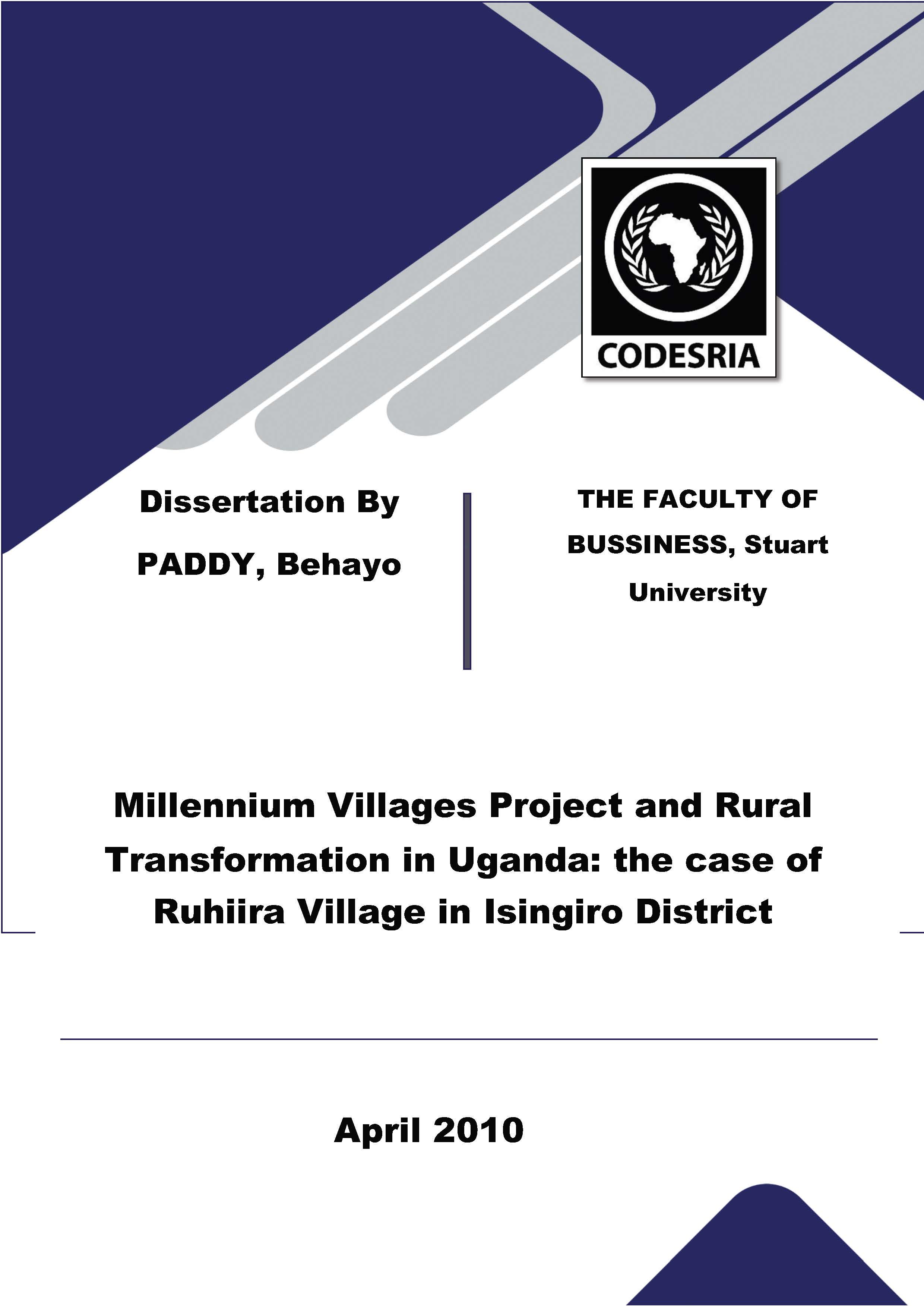Millennium Villages Project and Rural Transformation in Uganda: the case of Ruhiira Village in Isingiro District
Mots-clés :
Primary education, development projects, villages, gender equality, student drop out, rural transformation, UgandaSynopsis
The study assessed the impact of Ruhiira Millennium Villages Project on the rural
transformation of the project area. In particular the study focused on how project
interventions had impacted on the overall school enrolment, gender equality, dropout
rate, and PLE performance. It further analyzed whether the project would finally be
sustained. From this background presented project achievements were used to discuss
their implication to the overall rural transformation of the district.
Different methodologies were used in the process of data collection with questionnaire
method being applied to generate quantitative data from 384 respondents. Additional
quantitative data from documentary evidence were obtained from primary schools
records and project achieves. In-depth interviews were conducted using the interview
guide to compile qualitative data from selected key respondents. More qualitative data
were generated from the eight primary schools using focus group discussions. The
generated qualitative data were accordingly content anal yzed hence transforming them
into quantitative forms.
The research findings revealed that project interventions had led to increased overall
enrolment and limited improved PLE performance. The research study further indicated
that the project had helped schools to eliminate gender inequality in favour of female
pupils. It was hoped that the attained gains in primary education in conjunction with
achievements from other sectors of the project if sustained would initiate rural
transformation.
However, much as the project has made some substantial achievements, it was
established that the project will not be sustained in its current design and implementation.
Téléchargements
Références
Allan, T., and Thomas, A,. (ed), 2000, Poverty and Development into the 21'1 century, Oxford: Oxford University Press.
ANSA Secretariat, 2007, Alternatives to Neo-Liberalism in Southern Africa: 'Towards a people-driven development agenda', Harare: Southern African Trade Union Coordination Council.
Bella, N., and Nandu Mputu, H., 2004, Drop-out in primary and Secondary Schools: A Global Issue and an Obstacle to Achievement of the Education for all Goals. The International Journal on School Dissatisfaction, Vol. 2, No 2, ppl4-30.
Bjorn, H., 1990, Development Theory and the Three Worlds, London: Wiley Publishers Blackden, M., 1993, Paradigm Postponed: Gender and Economic Adjustment in SubSaharan Africa. Washington DC: World Bank.
Boissiere, M., 2004, Determination of Primary Education and Outcomes in Developing Countries: Background Paper for Evaluation of the World Bank's Support to Primary education, Washington DC: World Bank.
Chamber, R, 1983, Rural Development Putting the Last First, Essex: Pearson Education.






